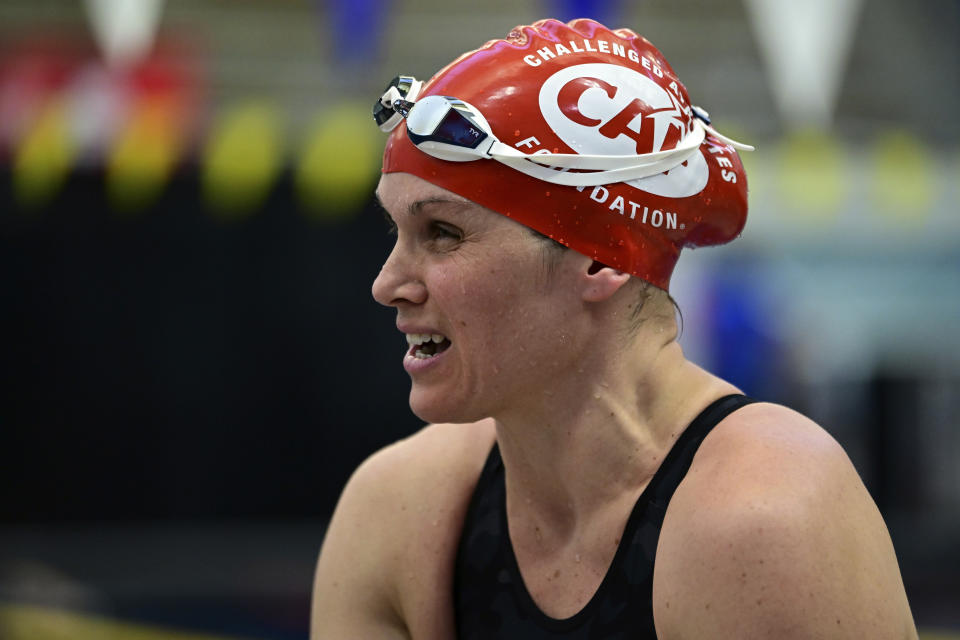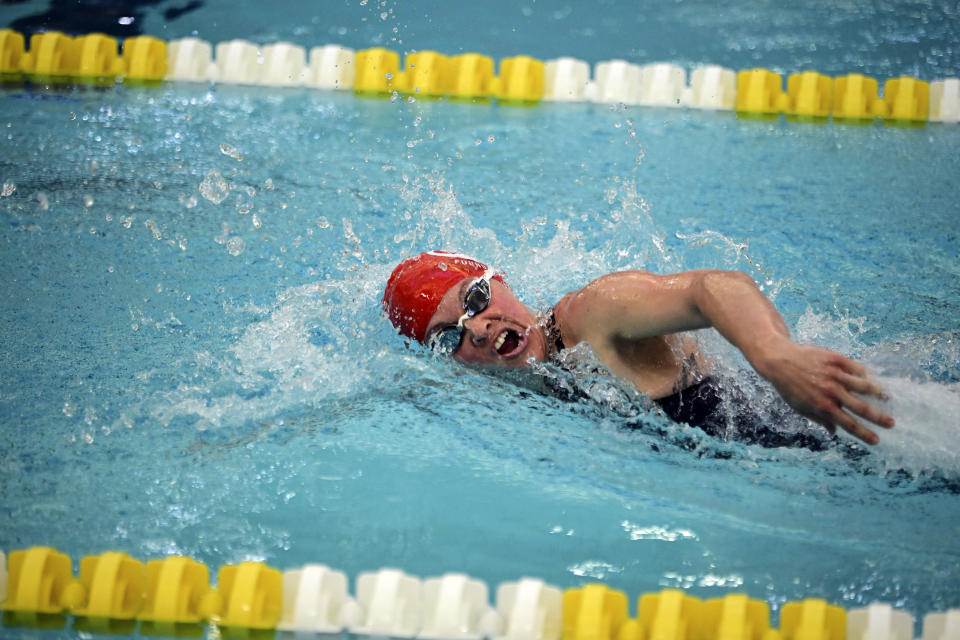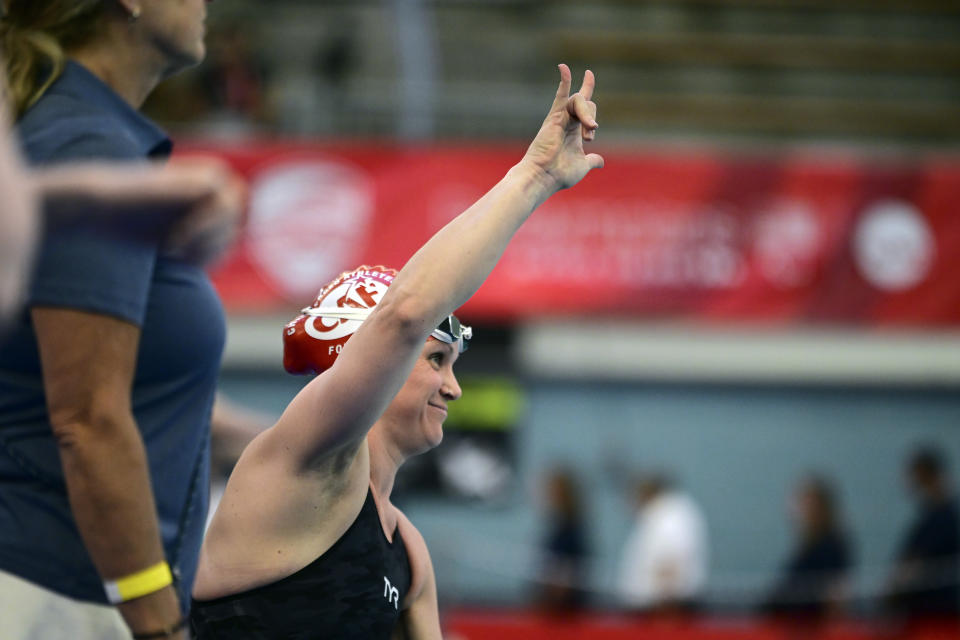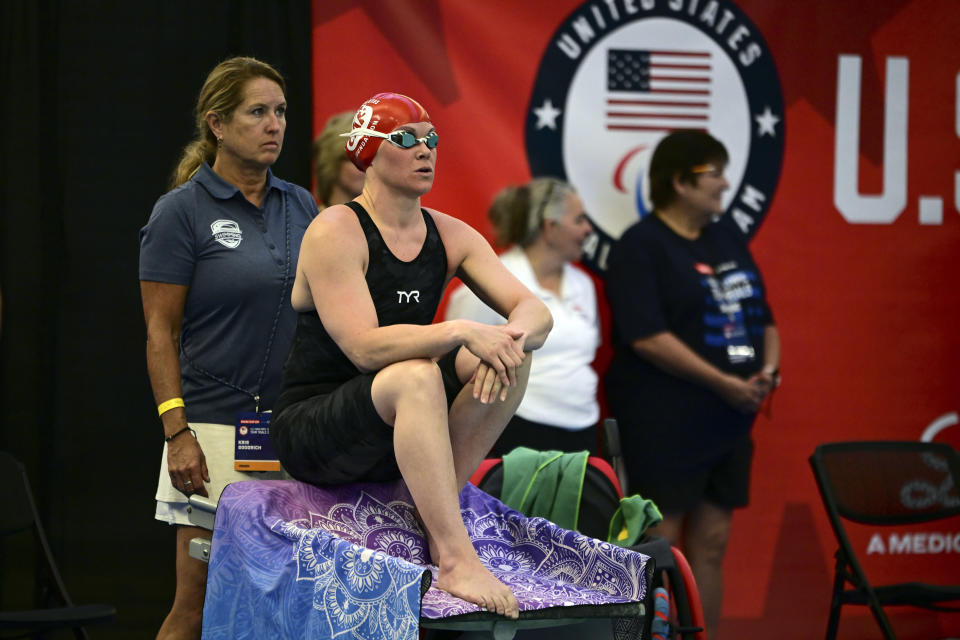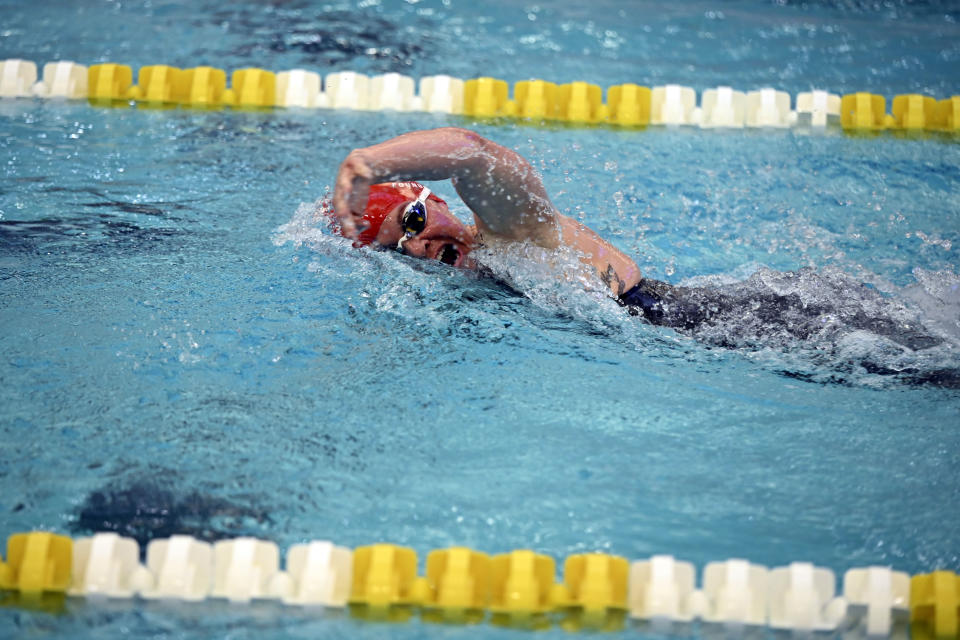Paralympic swimmer Christie Raleigh Crossley may be close to achieving longtime athletic dream
MINNEAPOLIS (AP) — Christie Raleigh Crossley was watching a documentary recently in which basketball star Sue Bird mentioned how every time she was selected to Team USA for the Olympics, she felt like a kid again.
When the scene was over, Raleigh Crossley paused her TV and cried. She thought about the injuries, the surgeries and the impairments that rendered impossible her childhood Olympic dream. Later, though, came a sense of peace. “I wasn’t sitting there going, ‘I’m never going to be an Olympian,’” she said.
This week in the Freeman Aquatics Center at the University of Minnesota, Raleigh Crossley has instead set her sights on reaching the biggest stage in adaptive athletics with victories at the U.S. Paralympic swim trials. A trip to Paris for the 2024 Paralympics could finally fulfill her ambition.
Raleigh Crossley’s dream of being an Olympic swimmer began at age 9, watching the Atlanta Games. The native of Toms River, New Jersey, had an ability in the water that landed her at Florida State, where she won the ACC Freshman of the Year award and was named an All-American twice.
But accidents in 2007 and then 2008 hurt her badly. In the first, Raleigh Crossley sustained back and neck injuries from a car crash in which she was hit by a drunken driver. The following year, she was the victim of a pedestrian hit-and-run and sustained a brain injury.
Still, Raleigh Crossley won a Division III national title at Rowan University before her college eligibility was exhausted.
Through her collegiate career and beyond, the aspiration to be an Olympian never wavered. But after training with Michael Phelps and other swimmers returning from the 2008 Beijing Olympics, Raleigh Crossley decided to start a family – she now has three children.
Raleigh Crossley began to think about one more shot at Olympic qualifying, but in December 2018 she experienced partial paralysis from a brain tumor. After surgery, she returned to the pool to prepare for the 2020 trials, only to find she had no control over her left arm when swimming. Her quest for Tokyo was abandoned after just 50 meters in the water.
Raleigh Crossley watched the Tokyo Paralympics from her home and was intrigued by the commentary of former Paralympic swimmer Michelle Konkoly. She called Konkoly’s coach, Paul Yetter, shortly thereafter and asked if she could simply avoid using her nonfunctioning arm while in the water.
“He was like, ‘it could work,’” Raleigh Crossley recalled of their conversation. “My entire para career, I’ve trained with just one arm."
Raleigh Crossley began working toward getting to Paris two years ago. A few American records and a 100-meter backstroke world championship later, she seems likely to claim a spot when the U.S. para-swim team is announced on Sunday. Through Friday she had won both the 100-meter backstroke and 100-meter freestyle in her class at the Paralympic trials.
Every Paralympian has a story behind why they are in the Games. Raleigh Crossley has the unusual perspective of a decorated career as an able-bodied swimmer before competing in para events.
“There’s muscle memory, that left arm will do whatever,” Raleigh Crossley noted of her new swimming style. “But if I focus on my right (arm), then I know that that side at least is where my power is.”
Raleigh Crossley’s coach, Wilma Wong, has worked with several Paralympic swimmers.
“Every human has a part of their body that is not equal,” Wong said. “You’re always working with some sort of discrepancy, it’s just that the discrepancy is a little bit bigger when someone has a physical impairment.”
Raleigh Crossley acknowledged that the adjustment to one-armed swimming was a massive mental block to navigate. “In the past, I have been a little stubborn and hard-headed,” she admitted. “It was taking other people going, ‘I don’t think that’s what’s working best, try this,’ and going, ‘I’m going to trust in you on that.’”
At age 37, it all seems to be coming together physically for Raleigh Crossley. Emotionally, it’s still a journey. She said the proximity of her lifelong goal only really set in for her when swimming in her first preliminary round at the trials on Thursday.
“In the warm down pool, I told my coach, ‘I’m going to do a 500 (meter),’ she said. “I’ve got tears to cry.”
___
Jack Rachinsky is a student in the John Curley Center for Sports Journalism at Penn State.
___
AP Summer Olympics: https://apnews.com/hub/2024-paris-olympic-games
